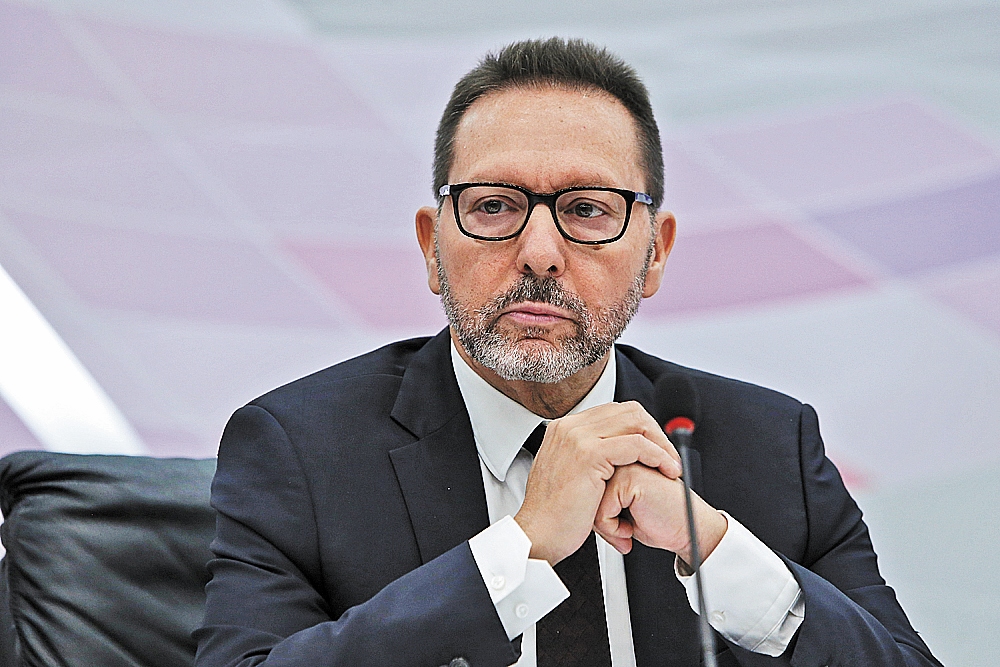
Former finance minister and current Bank of Greece (BoG) Gov. Yannis Stournaras, among the most prominent “old hands” during the country’s bailout era, on Thursday detailed his intimate experiences from that period – by the far the most tumultuous since the restoration of democracy in 1974.
In an uncharacteristically frank interview, by central bank governors’ standards, Stournaras was first queried over the Samaras-Venizelos coalition government (in which he served as the FinMin), along the pivotal role of former German Chancellor Angela Merkel in the three successive memorandums-cum bailouts agreed to and implemented by separate Greek governments, as well as the controversial and – in the end – futile negotiations with institutional creditors by Alexis Tsipras’ coalition government in the first half of 2015.
Speaking on a live talk radio program broadcast by Athens-based Skai FM, Stournaras also fielded questions over press speculation that he’s a like candidate to be the country’s next president of the republic – a ceremonial head of state post filled by Parliament vote.
‘Respect for Merkel’
Asked about his opinion of the former German chancellor, the most powerful European politician during the Greek bailouts, Stournaras expressed what he called respect for Merkel and her efforts to rescue a debt-swamped Greece at the time.
“…things are judged from the results, but the last time the International Monetary Fund (IMF) disbursed a loan (to Greece) was in the spring of 2014,” he said, adding: “Things were done right during (Antonis) Samaras’ tenure (as prime minister), the rest is up to history. Greece was truly spared by a hair, and in the end, Merkel played a very significant role in rescuing Greece, therefore I view her with respect, but that doesn’t mean that everything was done right.”
In citing things that weren’t “done right”, in his view, Stournaras cited the behind-the-scenes developments related to then German FinMin Wolfgang Schäuble’s proposed “time-out” for Greece, essentially the country’s voluntary departure from the common Euro area (Eurozone) with the prospect of a future re-admission once economic and fiscal conditions allowed.
Stournaras was blunt on Thursday in recalling the radical proposal by the late German politician, essentially a voluntary “Grexit”, stating that “if Greece that left the Euro at the time, it would have become Syria.”
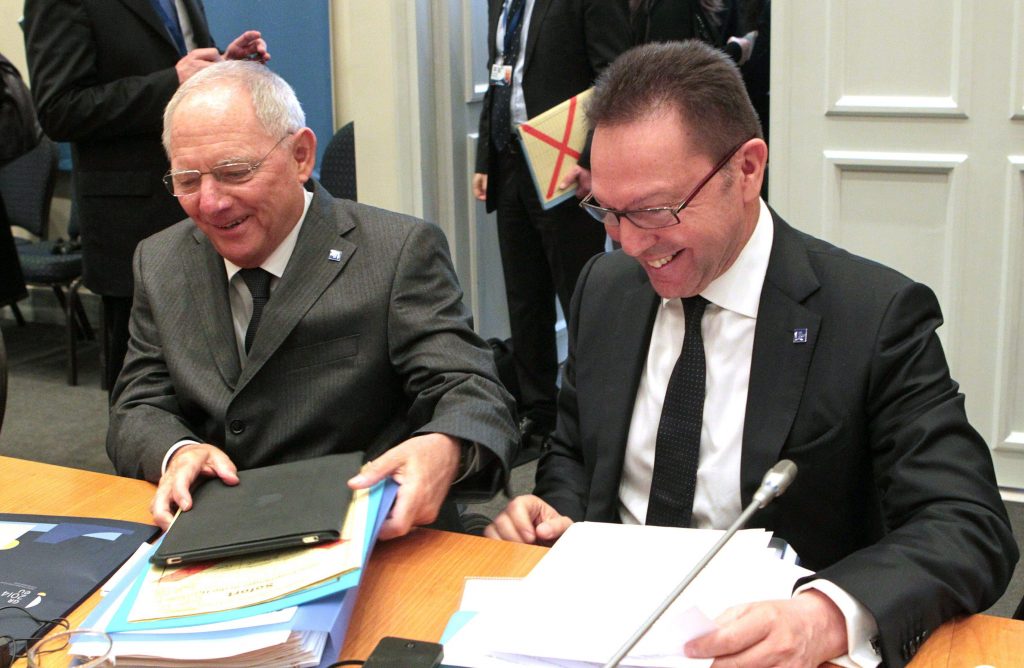
File photo: German Finance Minister Wolfgang Schaeuble (L) and Greek Finance Minister Yannis Stournaras attend a Eurogroup Meeting at Zappeion Hall in Athens, Greece, 01 April 2014, EPA/PANTELIS SAITAS
Third memorandum
Asked about one of the most scrutinized and debated periods of the bailout era, namely, whether creditors were at fault in 2014 when they ostensibly failed to “sign-off” on the country’s exit from the second memorandum even though conditions had been fulfilled by the then Samaras government, but instead “hedged their bets” before a looming election victory by Alexis Tsipras and his leftist SYRIZA party, Stournaras called the development a “major foul”.
He said a condition set by the Eurogroup for Greece was that when the country achieved a primary budget surplus then creditors would “restructure” the public debt and lower interest rates.
“However, Germany was then before European (Parliament) elections and didn’t want to proceed, so we (referring to the creditors) tried to find every possible excuse. The second excuse was that if we (creditors) did it now, then if the (Samaras) government fell and another more undisciplined one came to power, then we (creditors) wouldn’t have more weapons in our disposal. But in the end, because everything is decided by the result, if we had done everything then, we may not have needed the third memorandum (July 2015), which was perhaps the harshest of all,” Greece’s central banker emphasized.
Asked about former prime minister Alexis Tsipras’ denial that the third memorandum– signed by his once rabidly “anti-bailout” coalition government – cost the country 100 billion euros, he merely referred to the IMF’s debt analysis for Greece in late 2014 and first six months of 2015, in more-or-less confirming the economic costs of the “leftist bailout” passed in the summer of 2015.
“I have experienced these things, no one can tell me that it’s not so…Very few people know what we went through back then, so it’s understandable that I have a sensitivity over these issues. But I know that in the end, all’s well that ends well, and we are reaching the point where we are a model for both Germany and France,” he said.
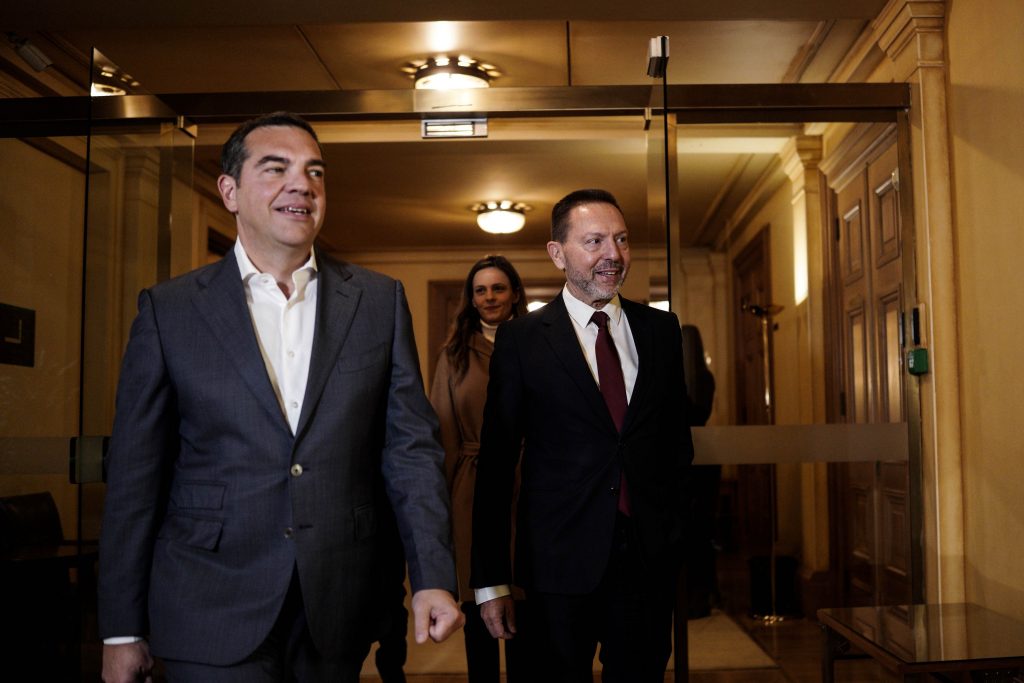
BoG Gov. Yannis Stournaras (R) walks with former prime minister (2015-2019) Alexis Tsipras in February 2023, months before the latter stepped down as the president of the main opposition SYRIZA party.
Speculation over president’s post
In response to speculation – mostly in the press – that he’s a favorite as the next president of the republic, succeeding incumbent Katerina Sakellaropoulou, Stournaras was adamant:
“The country has a president, who is very good, in my view. If you want my opinion, to the extent where I have the liberty of speaking, the country has a central banker who likes his job.”

Swearing in ceremony for the Governor of the Bank of Greece, Yannis Stournaras, at the Presidential Mansion, in Athens, June 27, 2020, as President of the Republic Katerina Sakellaropoulou looks on.
Bank commissions, obligations
Speaking less than a month after the government finally announced measures to cap and restrict commissions, fees and surcharges imposed by the country’s four systemic banks, something demanded over the past few years by the political opposition and consumer rights’ groups, Stournaras said “the commissions that banks get are not just fees from money transfers or ATM withdrawals, they’re also commissions from investment banking related to portfolio management. So, you can’t interfere with these, as they are fees for doing business. As such, believe me, they (measures) are the correct, rational and cost-measured measured. Possibly, the banks have also fallen victim to their own press, namely, that everything is going perfectly, that they’re posting very big profits.”
At the same time, he warned that they are posting profits only in the recent period.
“They need to post profits, and to a great extent, their profits are the result of the monetary policy we followed at the European Central Bank. Don’t forget that in the previous years they posted major losses…Half of the (systemic) banks’ capital, precisely because of the (Greek state) bonds’ ‘haircut’, because of the bad loans, is not yet paid-in capital, it’s an obligation they have towards the Greek state, it’s called a deferred tax.”
Trump presidency
Finally, he also expressed concerns over the coming Trump presidency in the United States, saying that US President-elect Donald Trump’s campaign pledges to impose tariffs on certain imports, reduce US corporate taxes and deport migrants comprise a “toxic mix” when considered in light of a sharply ballooning debt incurred by the US federal government.
“Many people will say that this doesn’t matter because the dollar stands behind (the US economy), but they forget that the dollar is the foundation of the system because it’s based on safe assets, which are (US) bonds and the US T-bills, but if they fail, the dollar will fail in the long term, and Europe will have to appoint someone to negotiate. A war is always a very, very unpleasant development, of course, because there is a loss of life, but also in an economy; Europe, for instance, entered into a crisis because of the war in Ukraine.”
Source: tovima.com
Latest News

Meloni and Trump Meet in Washington, Vow to Strengthen Western Ties
“I am 100% sure there will be no problems reaching a deal on tariffs with the EU—none whatsoever,” Trump stressed.

ECB Cuts Interest Rates by 25 Basis Points in Expected Move
The ECB’s Governing Council opted to lower the deposit facility rate—the benchmark for signaling monetary policy direction—citing an updated assessment of inflation prospects, the dynamics of underlying inflation, and the strength of monetary policy transmission.

Current Account Deficit Fell by €573.2ml Feb. 2025: BoG
The improvement of Greece’s current account was mainly attributed to a more robust balance of goods and, to a lesser extent, an improved primary income account

Hellenic Food Authority Issues Food Safety Tips for Easter
Food safety tips on how to make sure your lamb has been properly inspected and your eggs stay fresh.

Greek Kiwifruit Exports Smash 200,000-Ton Mark, Setting New Record
According to data by the Association of Greek Fruit, Vegetable and Juice Exporters, Incofruit Hellas, between September 1, 2024, and April 17, 2025, kiwifruit exports increased by 14.2%.

Easter Tourism Boom: Greece Sees 18.3% Surge in Hotel Bookings
Among foreign markets, Israel has emerged as the biggest growth driver, with hotel bookings more than doubling—up 178.5% year-on-year.

Greece to Launch Fast-Track Tender for Offshore Hydrocarbon Exploration
Last week, Papastavrou signed the acceptance of interest for the two Cretan blocks, while similar decisions regarding the two Ionian Sea blocks were signed by his predecessor

American-Hellenic Chamber of Commerce to Open Washington D.C. Branch
AmCham's new office aims aims to deepen U.S.-Greece economic ties and promote investment and innovation between the two countries

Why Greece’s New Maritime Spatial Plan Is a Geopolitical Game-Changer
This landmark development is more than just a bureaucratic step — it's a strategic declaration about how Greece intends to use, protect, and assert control over its seas
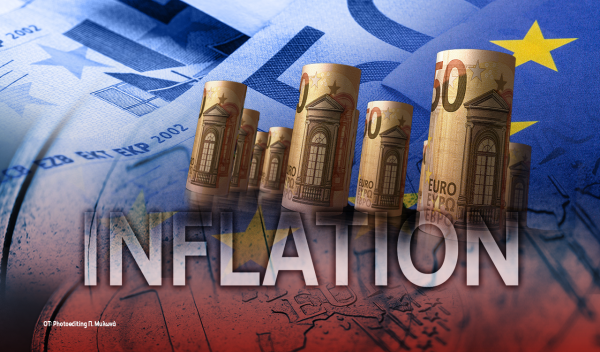
Eurozone Inflation Eases to 2.2% in March
Compared to February, inflation decreased in 16 member states, remained unchanged in one, and rose in ten.








![Πλημμύρες: Σημειώθηκαν σε επίπεδα ρεκόρ στην Ευρώπη το 2024 [γράφημα]](https://www.ot.gr/wp-content/uploads/2025/04/FLOOD_HUNGRY-90x90.jpg)




![Airbnb: Πτωτικά κινήθηκε η ζήτηση τον Μάρτιο – Τι δείχνουν τα στοιχεία [γράφημα]](https://www.ot.gr/wp-content/uploads/2024/07/airbnb-gba8e58468_1280-1-90x90.jpg)












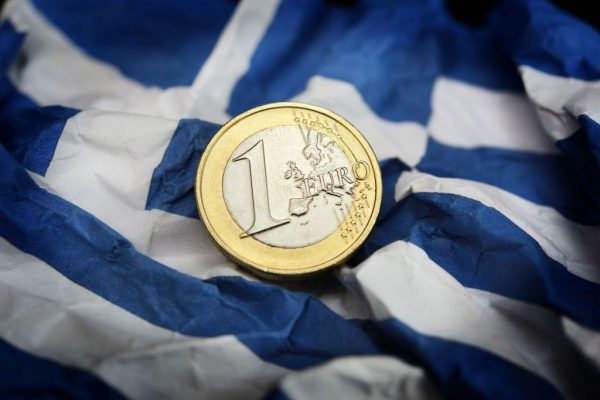


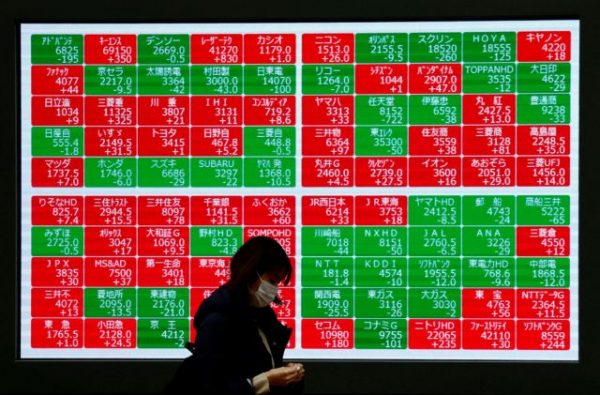
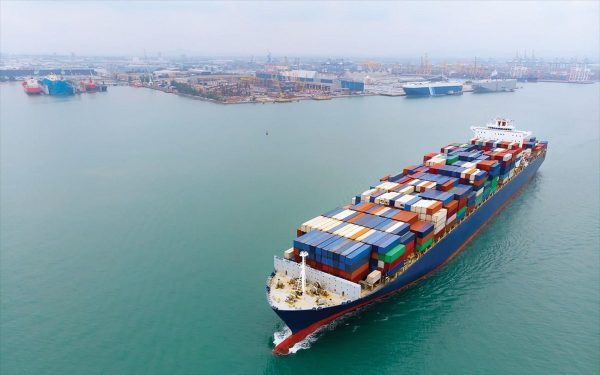
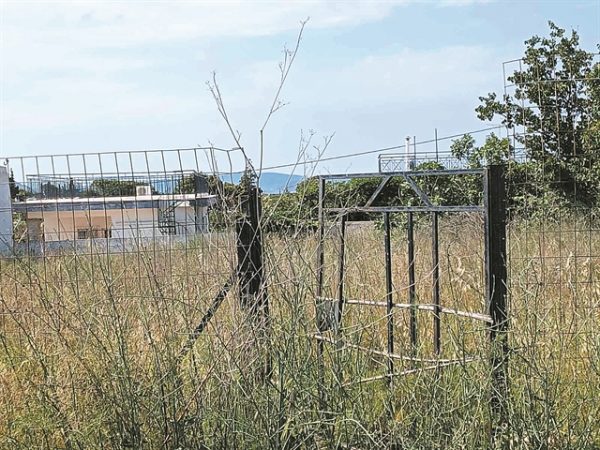






![Airbnb: Πτωτικά κινήθηκε η ζήτηση τον Μάρτιο – Τι δείχνουν τα στοιχεία [γράφημα]](https://www.ot.gr/wp-content/uploads/2024/07/airbnb-gba8e58468_1280-1-600x500.jpg)


 Αριθμός Πιστοποίησης
Αριθμός Πιστοποίησης